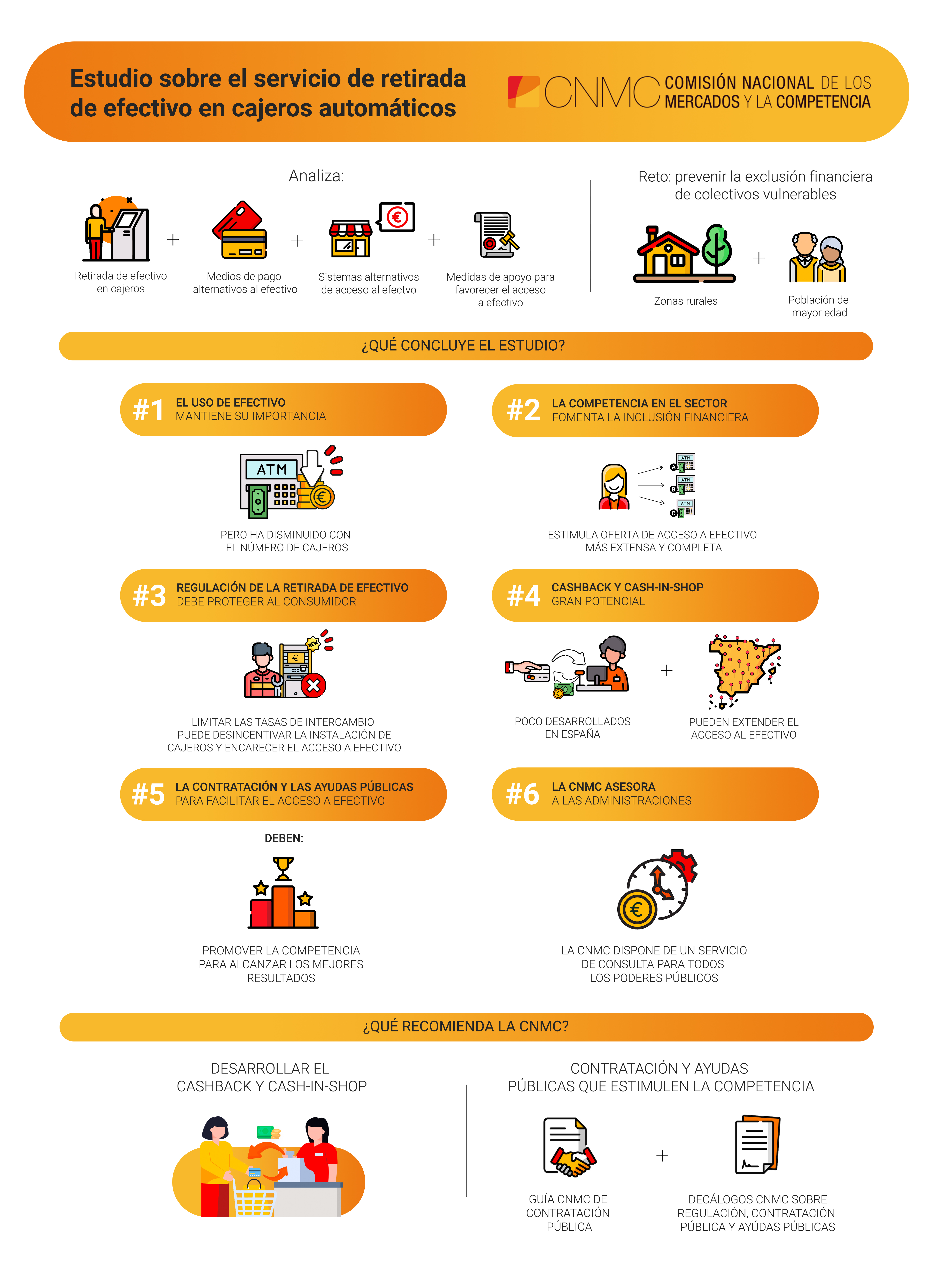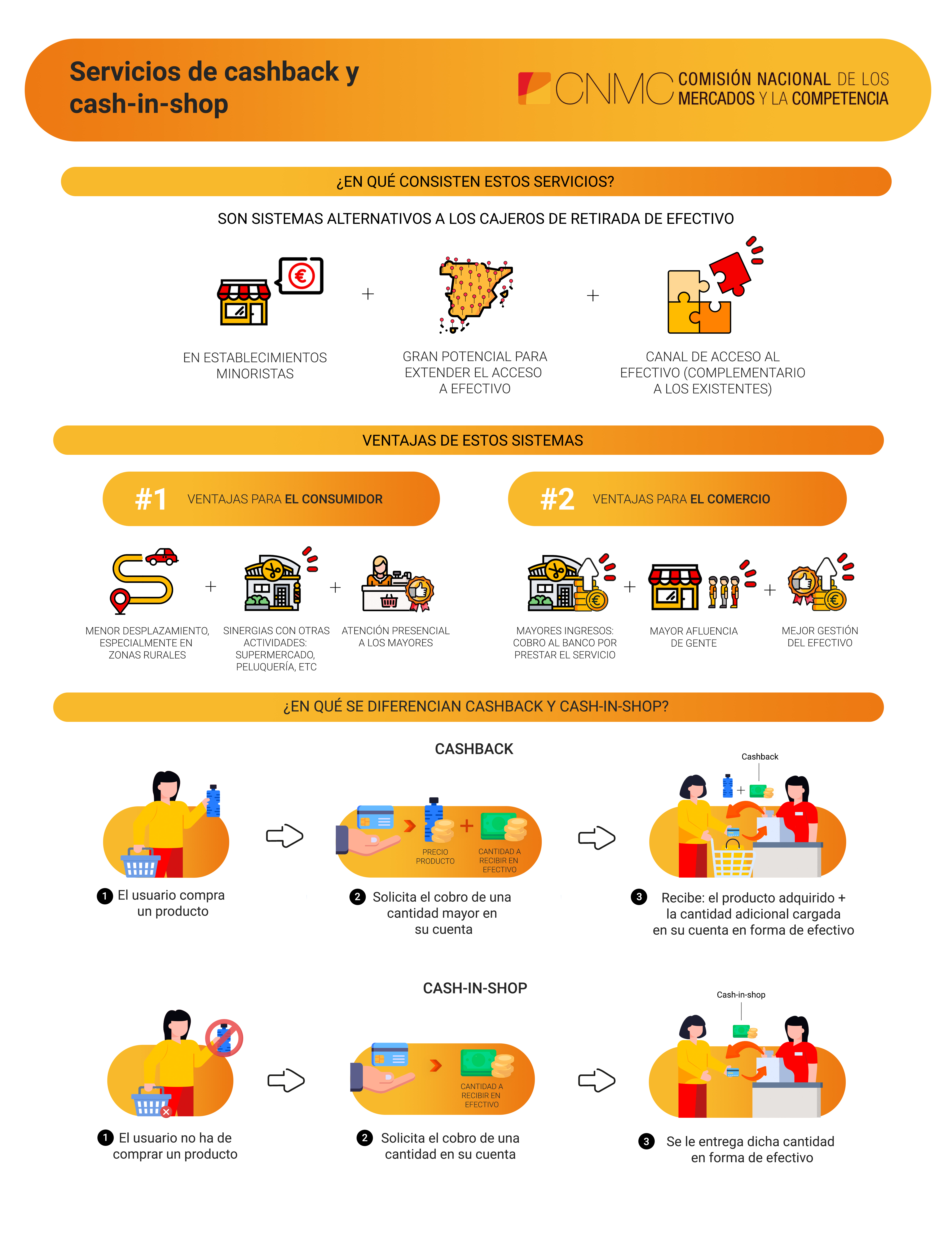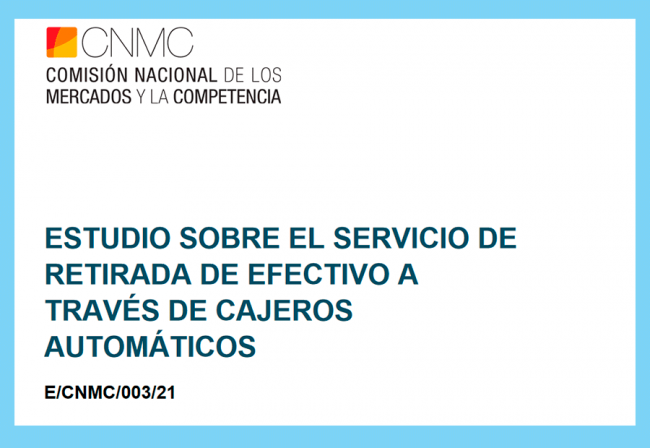The National Commission of Markets and Competition (CNMC) recommends facilitating the withdrawal of cash in businesses in the "Study on ATM cash withdrawals" so that citizens who are at risk of financial exclusion (rural areas and vulnerable groups) have easier access this type of service.
Among other recommendations, the CNMC points out the need to adopt a legal framework that promotes formulas such as cashback and cash-in-shop, very widespread in neighboring countries, which allow cash to be withdrawn at local businesses.
In addition, the CNMC recalls that public support for cash access systems in rural areas can be done through public tenders and the granting of aid, which must not distort competition.
In this line, the commission has prepared the Study at the request of the Secretary of State for the Economy and Business Support, as a result of a Non-Law Proposal approved by the Commission for Economic Affairs and Digital Transformation of the Congress of Deputies.
When referring to alternative systems to ATMs, the study explains how they work. In the case of the cashback system, when the customer buys a product in a store and pays for it with his bank card or through an application, he can ask the seller to charge him the purchase price plus an amount. That additional amount will be returned to you in cash.
Whereas, in the case of cash-in-shop, it is not necessary to link the cash withdrawal to a purchase.
The promotion of both formulas would facilitate the extension of cash access points and the financial inclusion of those who do not have a nearby ATM.
Regarding the second recommendation of the report, the CNMC recalls that public procurement and subsidy initiatives for the installation of ATMs or other cash access systems must promote competition and prevent private initiative from being expelled. To do this, it recommends following the guidelines of the CNMC contracting and public aid guides.
Likewise, the CNMC includes the following conclusions in its report:
- Reduction of ATMs. The number of ATMs in Spain has decreased by 23% in the last 15 years due to the closure of bank branches and digitalisation.
- Reduction of cash use. Younger and older people use cash the most. In 2021, less than 36% of citizens in Spain declared using cash as their most common means of payment, compared to 80% in 2014.
- Rural areas without cash withdrawal services. Although Spain is one of the European countries with the most extensive network of ATMs, 55% of Spanish municipalities (where 3% of the population resides) do not have an ATM.
- Competition contributes to greater financial inclusion, as it encourages operators to offer a wider and more comprehensive range of services.
- The regulation of interchange fees for cash withdrawals (interbank fees) may discourage the installation of ATMs. In addition, the significant differences in costs and the number of customers between ATMs make it challenging to establish fees that are appropriate for all cases without jeopardizing the sustainability of ATMs with lower demand.
- Low penetration of alternative systems. Cashback and cash-in-shop systems are more developed in other European countries and have great potential to increase access to cash.
- Public measures to encourage the installation of ATMs and other alternative cash access systems (regulations, public procurement procedures and public aid) should be governed by the principles of efficient economic regulation and promote competition to achieve the best results.

 STUDY ON THE CASH WITHDRAWAL SERVICE THROUGH ATMS (PDF-Spanish)
CNMC study on the cash withdrawal service at ATMs Questions and answers (PDF-Spanish)
STUDY ON THE CASH WITHDRAWAL SERVICE THROUGH ATMS (PDF-Spanish)
CNMC study on the cash withdrawal service at ATMs Questions and answers (PDF-Spanish)
18+ | Juegoseguro.es – Jugarbien.es





